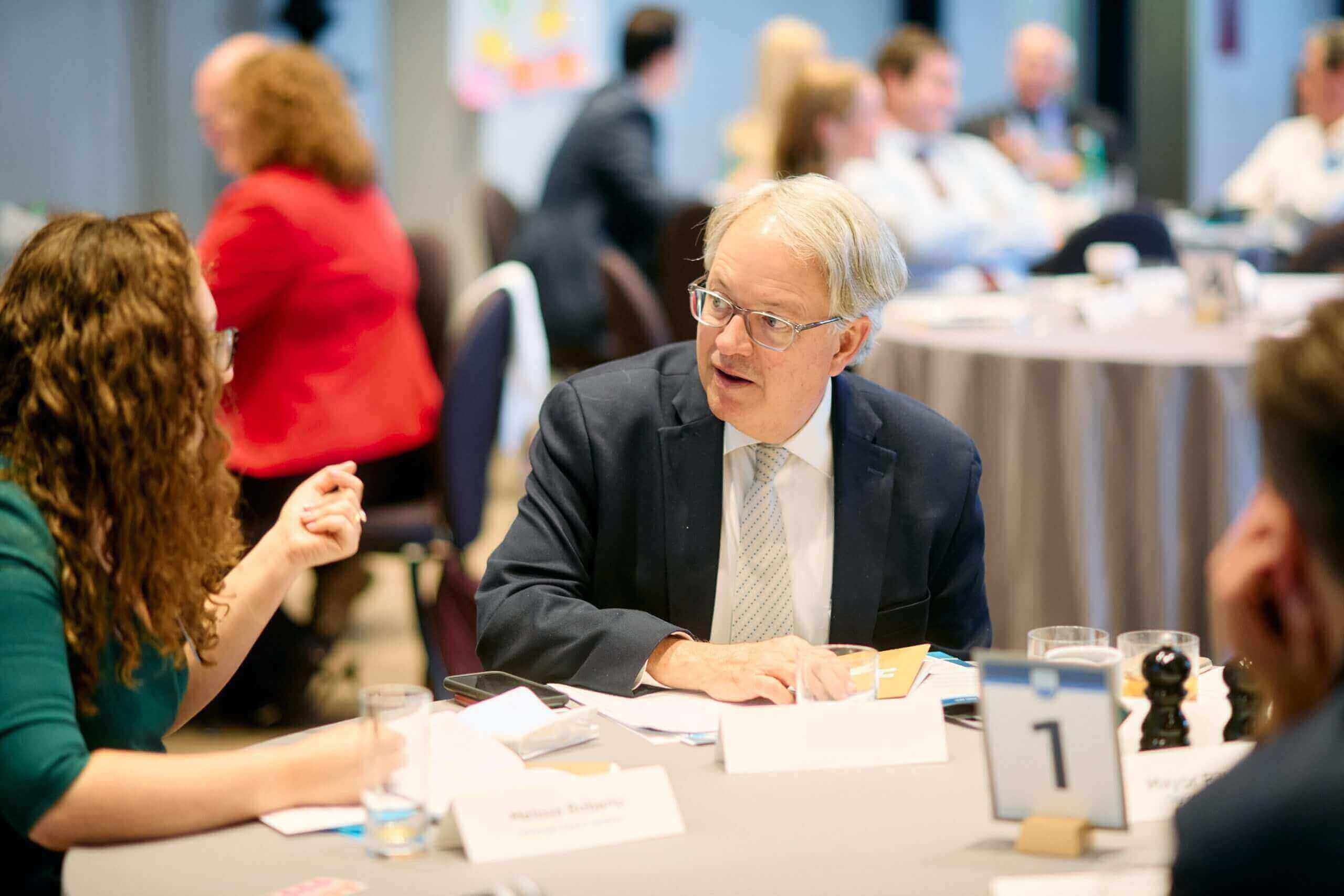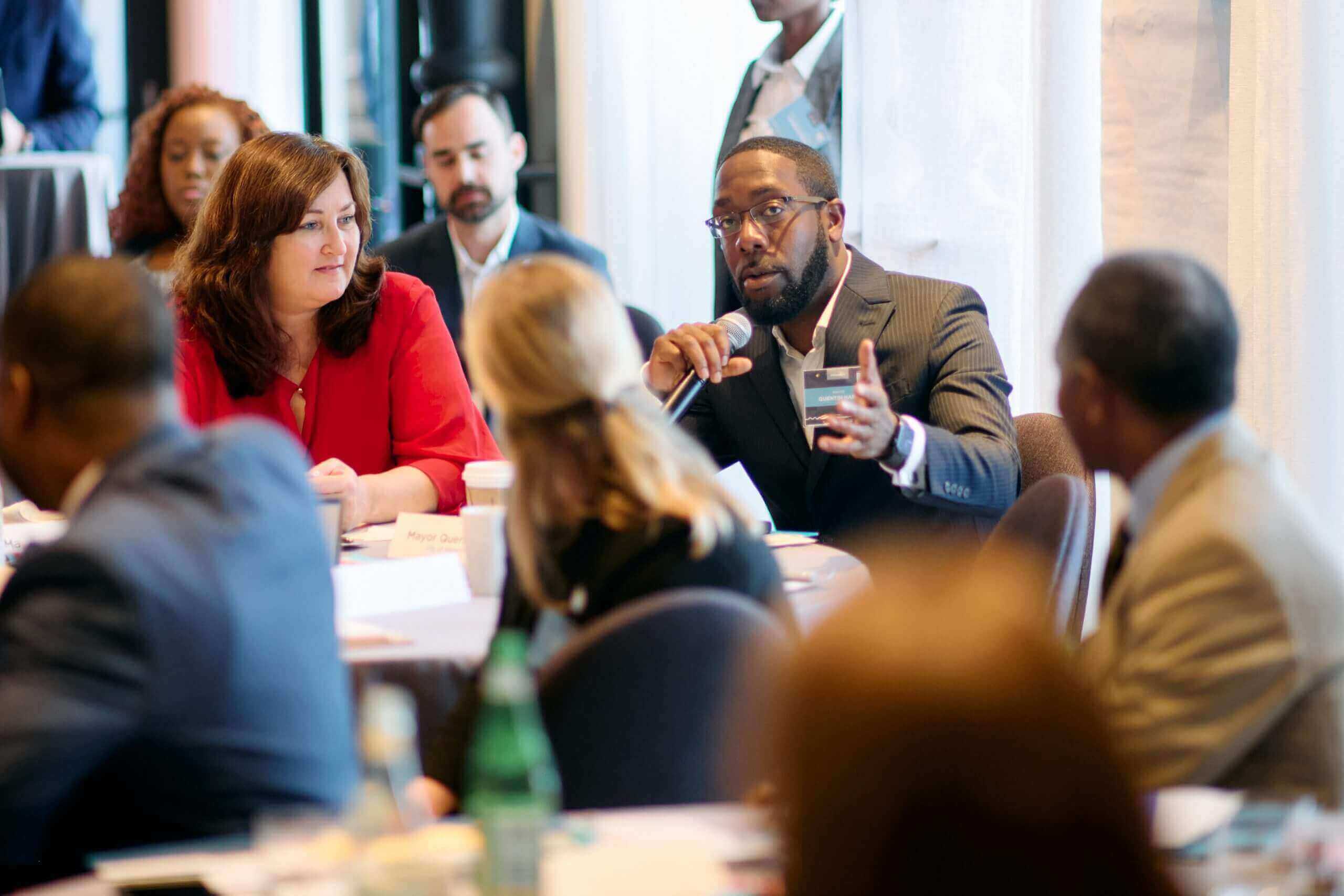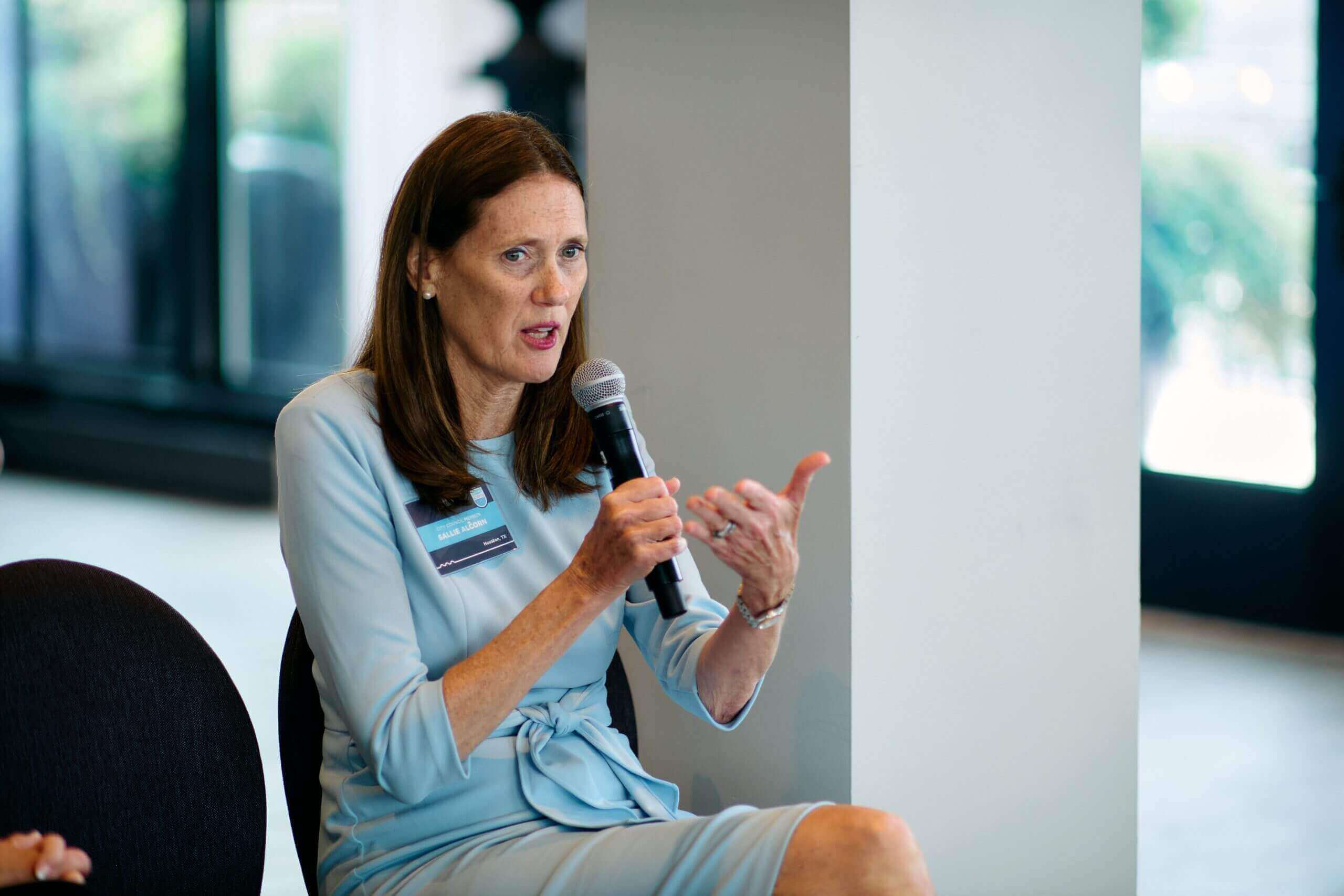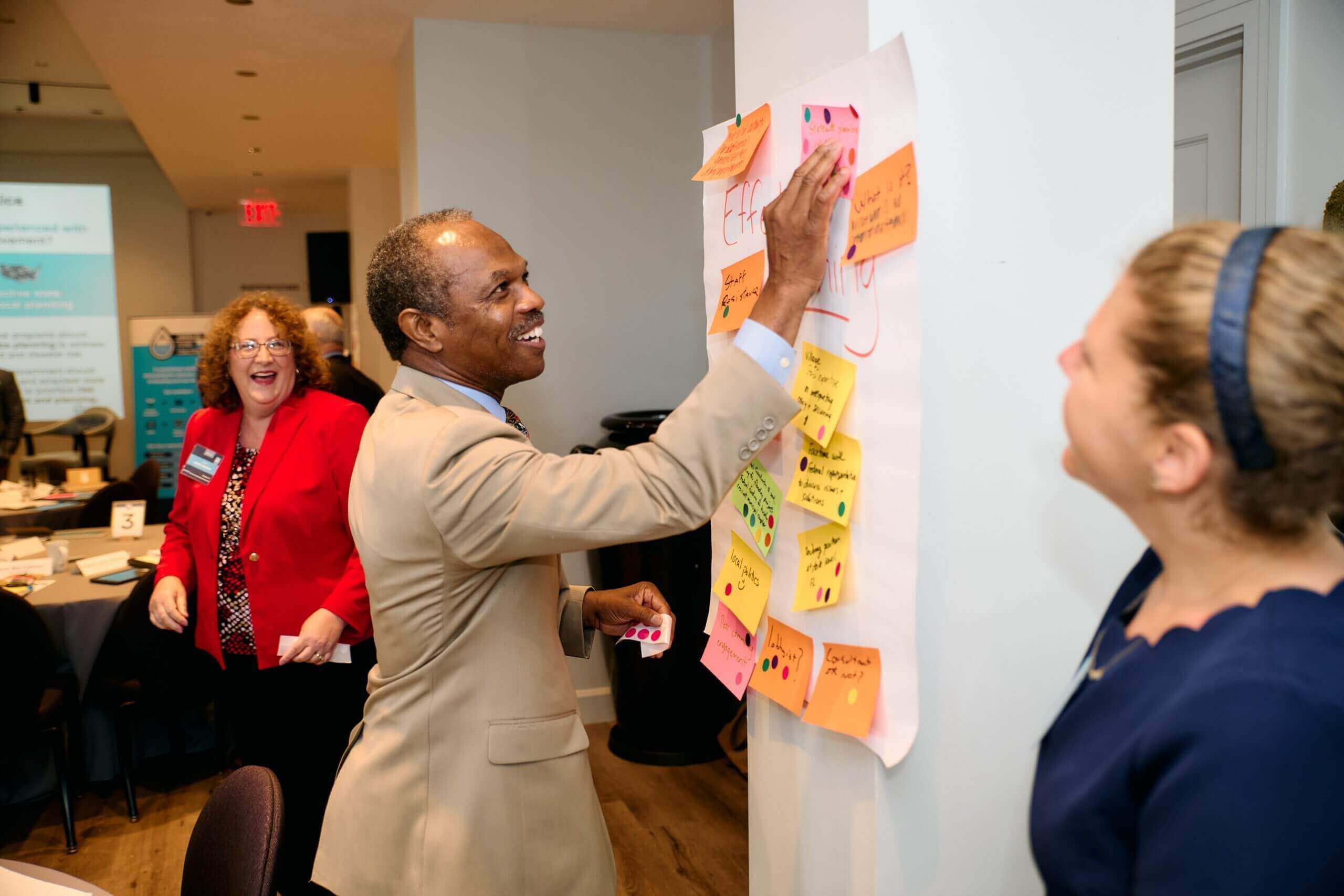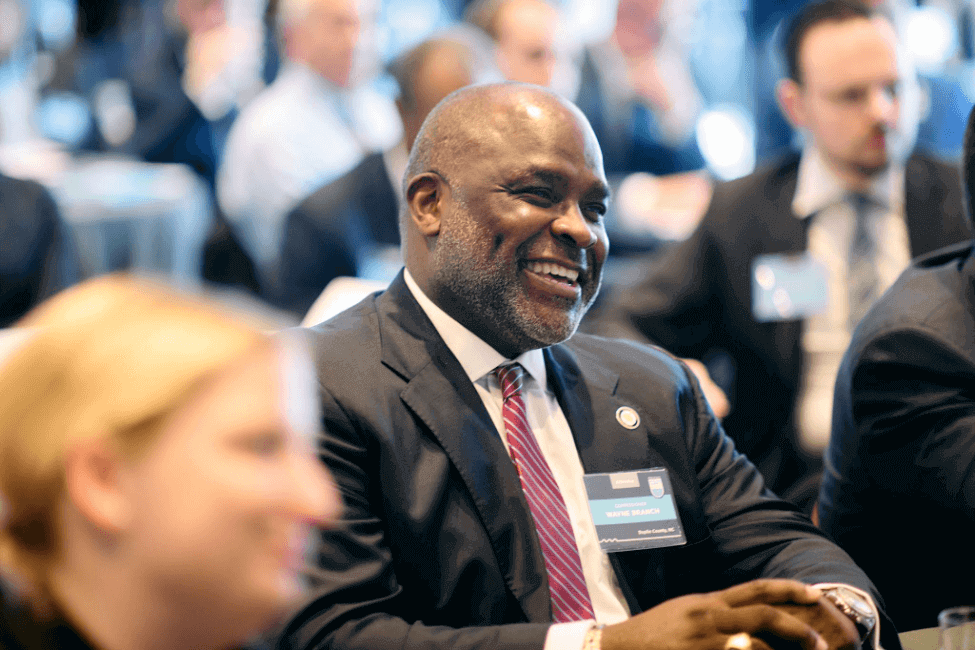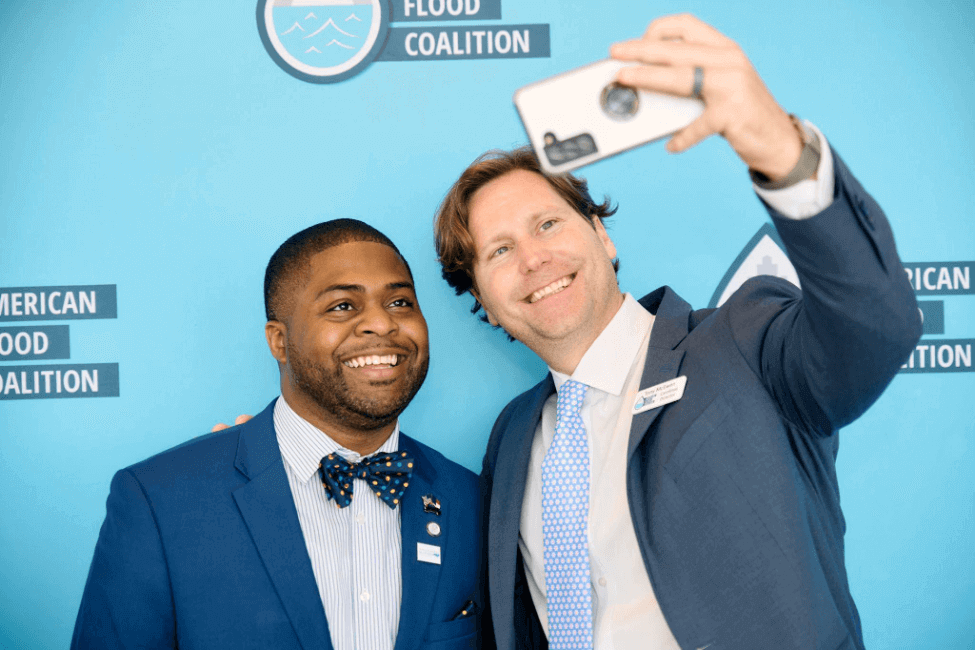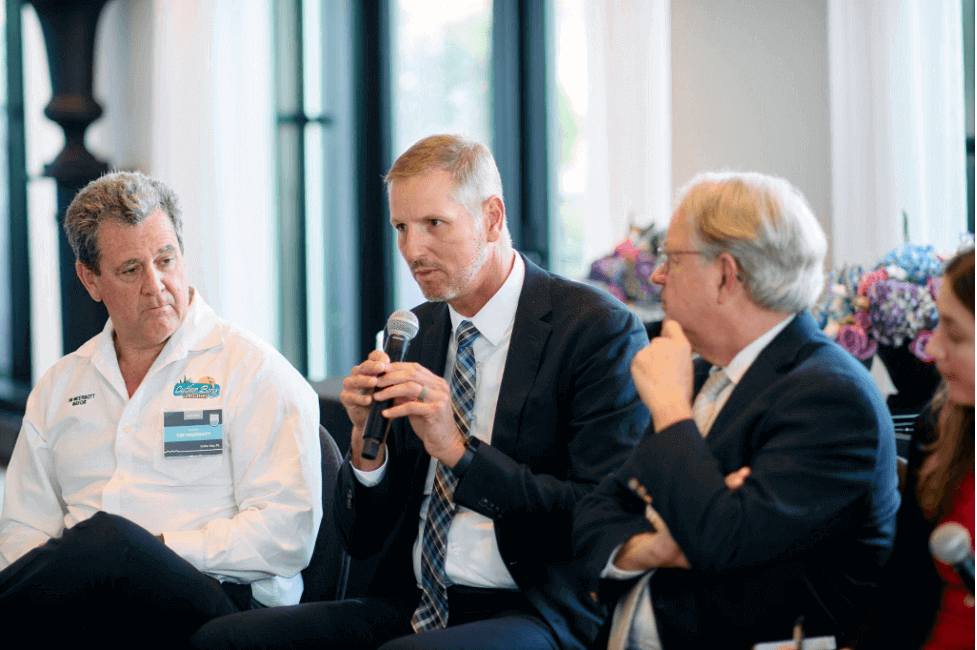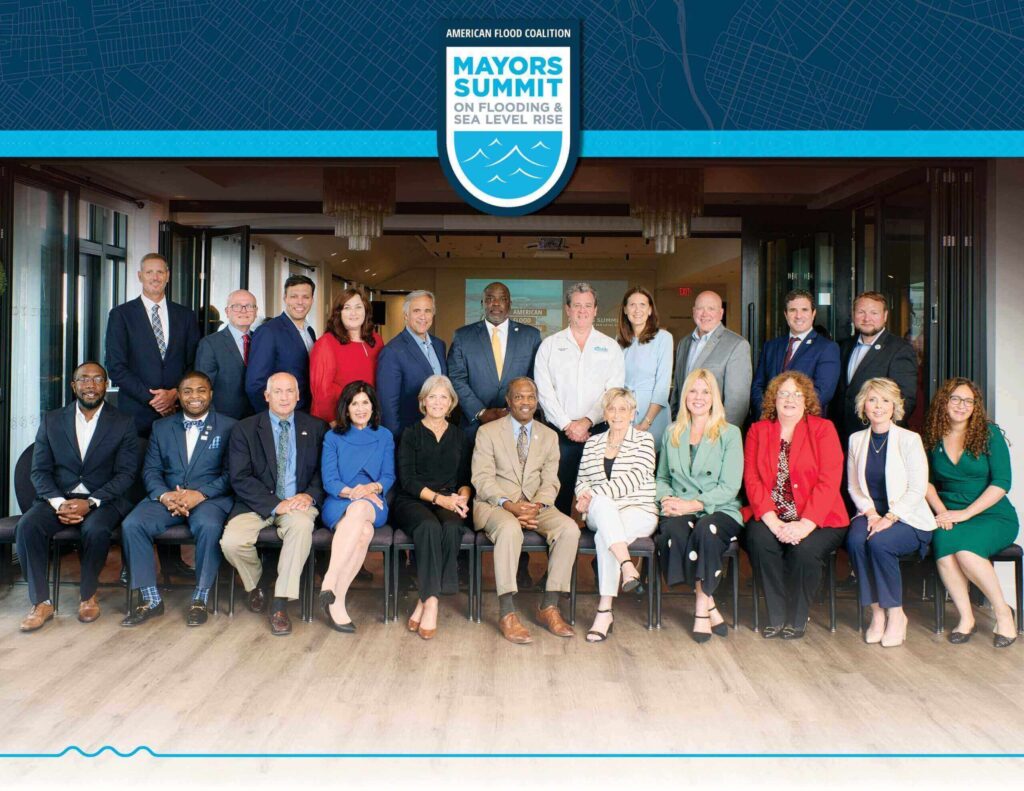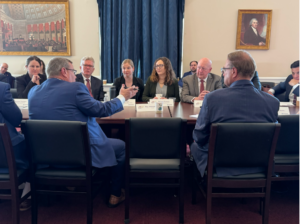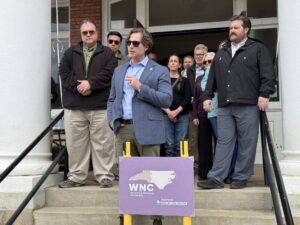June 29, 2022
—
Whether it’s heavy rainfall inundating farmland or tropical storms battering coastal cities, floods know no boundaries. And leaders representing flood-prone areas benefit from working together to find solutions. That’s why this month the American Flood Coalition hosted Mayors Summit on Flooding and Sea Level Rise in Washington, D.C.
“Local leaders face a unique, urgent challenge in addressing flood risk while balancing the responsibilities of leading a community,” said AFC Founder and Executive Director Melissa Roberts. “The Summit helped connect these leaders with each other, furthering the successful collaborations we are already seeing across the country.”
The three-day Summit connected 23 mayors and local leaders with each other, as well as federal experts and members of Congress, to explore solutions, build relationships, and drive action on flooding and sea level rise. The leaders came from municipalities in North Carolina, South Carolina, Iowa, Texas, Virginia, and Florida.
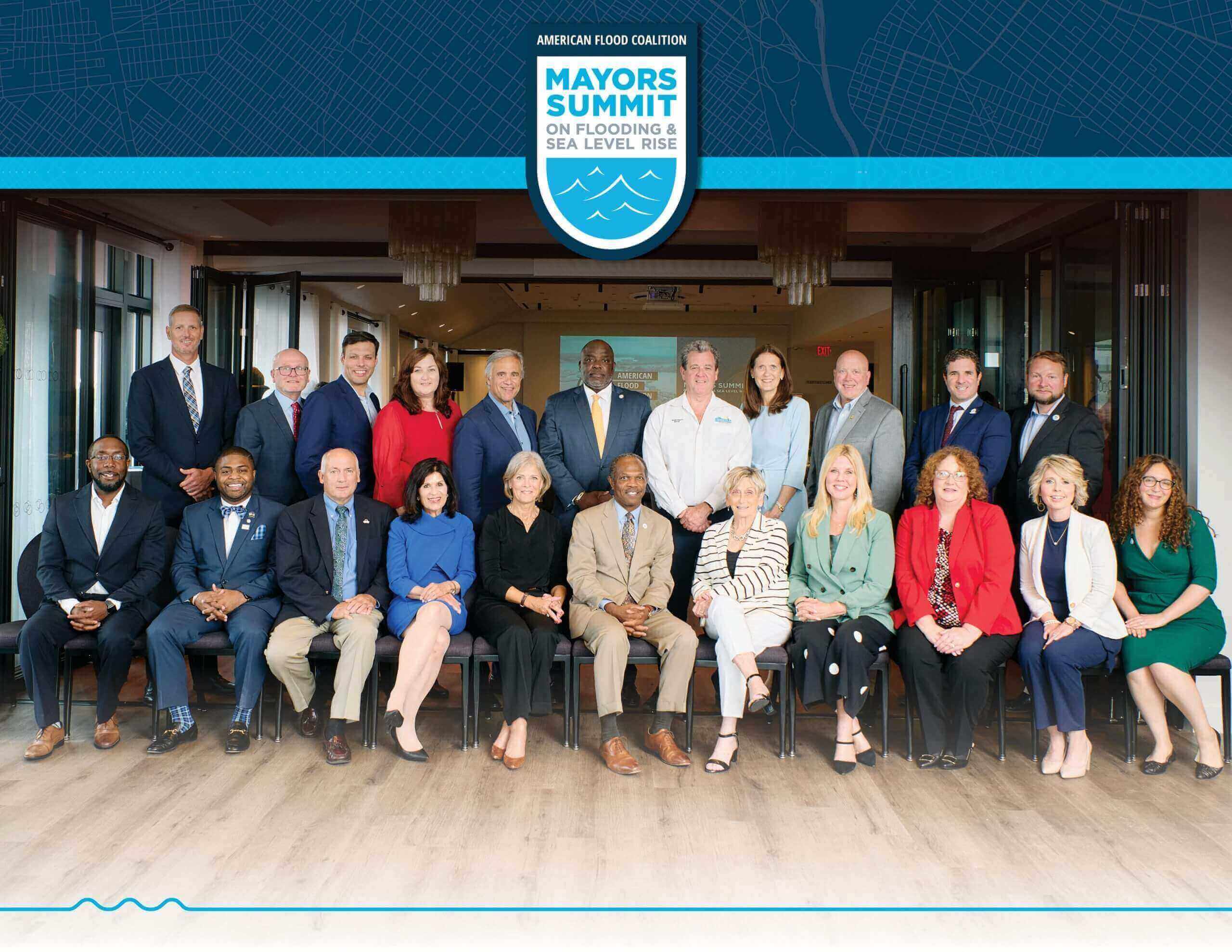
The Summit also allowed AFC experts and invited guests to share key insights and discuss specific challenges faced by each leader. Curated sessions included topics on federal funding and resources, flood resilience planning, and communications strategies. Mayors also presented their best practices to improve local planning and engage with their community.
In one session, Florida Chief Resilience Officer Wes Brooks discussed building resilience and accessing funding at the state level, connecting afterward with mayors in attendance from Florida.
“Reducing flood impacts must be a priority but shouldn’t come at the cost of sacrificing a community’s character or residents’ quality of life,” said Brooks. “The Mayors Summit is a great forum to share lessons learned, including from Florida, where we’re standing shoulder to shoulder with our mayors and local governments to help deliver effective and locally driven flood resilience projects.”
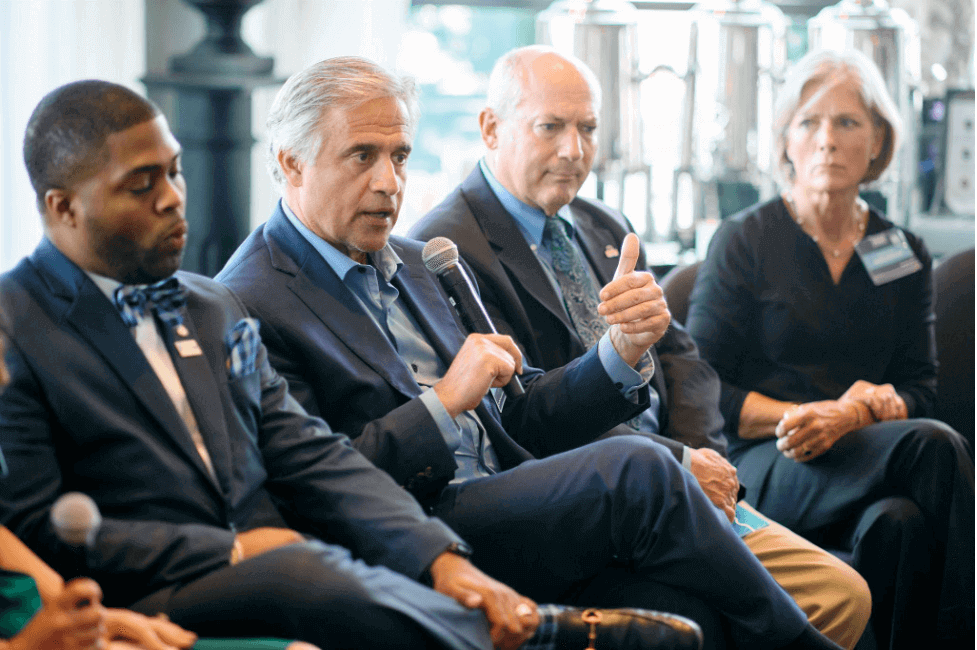
The Summit was purposely held in D.C. so local leaders could connect with federal agency officials and elected leaders. No time was that more apparent than when Mitch Landrieu, White House Senior Advisor and Infrastructure Coordinator, joined AFC’s Melissa Roberts for a fireside chat.
Coordinator Landrieu answered questions from local leaders and spoke of the challenges and opportunities for local governments seeking to access funds from the recently passed Infrastructure Investment and Jobs Act, which will invest over $90 billion for resilience in the coming years.
He also spoke of his time as mayor of New Orleans, the role in which he oversaw the city’s recovery from Hurricane Katrina, as well as BP’s Deepwater Horizon oil spill. From 2010 to 2018, Landieu rebuilt the Crescent City with resilience in mind, investing in projects to protect residents from stronger, more frequent storms of the future.
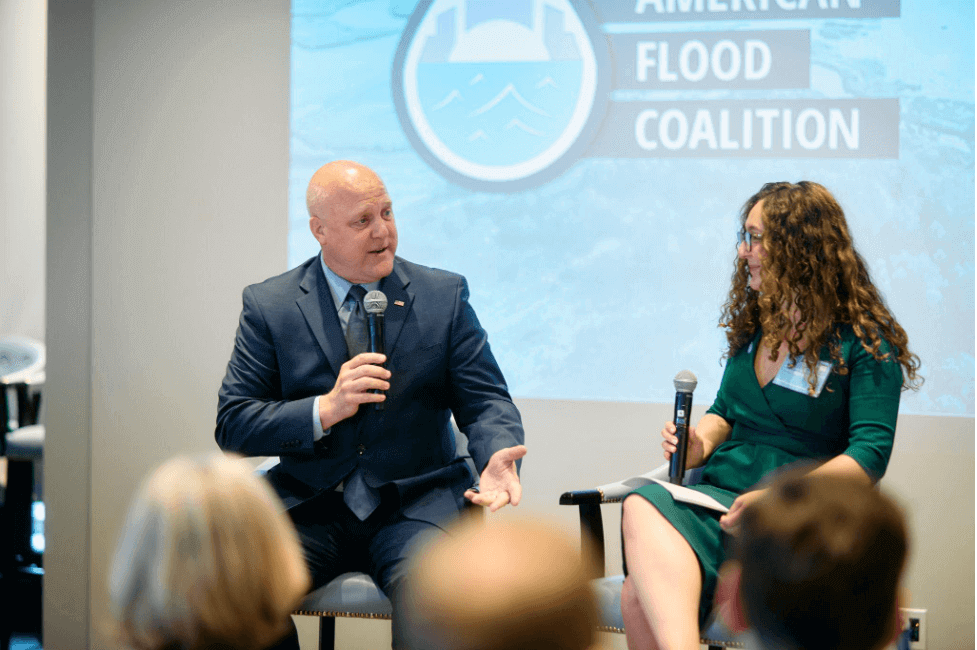
AFC also moderated a panel with Nicole LeBoeuf, Assistant Administrator for Ocean Services and Coastal Zone Management, National Ocean Service, NOAA; Victoria Salinas, Acting Deputy Administrator, Resilience, FEMA; and Keren Dettmer, Managing Director for Infrastructure Programs, Office of Water, EPA.
The panel complemented Landrieu’s insights by diving deeper into the landscape of federal funding for resilience, including opportunities specific to the Infrastructure Investment and Jobs Act. Each panelist answered questions on how local leaders can leverage grants, data, and other resources for flood resilience from their respective agencies.
The Summit was also an opportunity to share key insights from some of AFC’s own experts. During one session, staff members from the American Flood Coalition demonstrated to mayors how to use AFC’s Flood Funding Finder, an interactive tool that simplifies the complex federal grants system by filtering federal funding programs for flood resilience.

In another presentation, staff members highlighted the American Flood Coalition’s Adaptation for All Guide, an online booklet that features 36 flood solutions for communities of all sizes. The presentation sparked discussions among local leaders on ways to bring these solutions back to their towns, cities, and counties. Leaders then shared challenges and successes of planning flood projects in their specific communities and through regional efforts.
On the Summit’s final day, mayors and local leaders went to Capitol Hill to meet with AFC’s Federal Champions and other members of Congress. With more than 20 meetings total, local leaders voiced their flooding challenges and opportunities to members such as Senators Marco Rubio (FL), Tim Scott (SC), Thom Tillis (NC), and Chuck Grassley (IA), as well as Representatives Mariannette Miller-Meeks (IA), Greg Murphy (NC), Bobby Scott (VA), Maria Elvira Salazar (FL), Lizzie Fletcher (TX), and David Rouzer (NC).
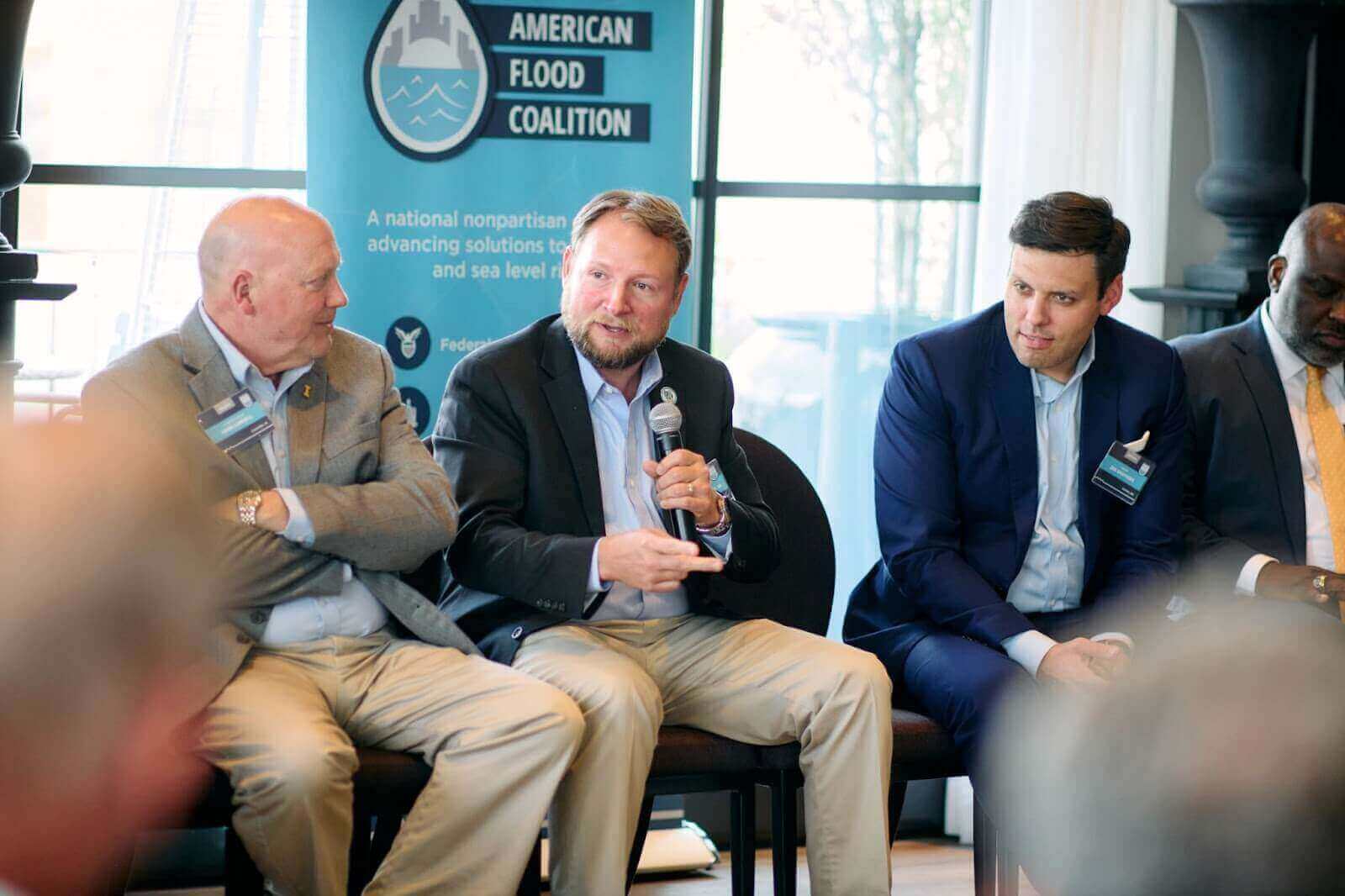
“Enjoyed meeting with local leaders from NC-07 and the [American Flood Coalition] to collaborate on solutions to build resilience and protect Southeastern North Carolina from flood risk,” Rep. Rouzer wrote on Twitter.
AFC’s Mayors Summit on Flooding and Sea Level Rise served as a platform for mayors to highlight local stories and form partnerships on the federal level for addressing flooding and sea level rise. But just as important, the Summit allowed leaders to collaborate across county and state lines, learning from each other and forging connections to tackle flooding together.
“I want to thank the American Flood Coalition for organizing this meeting of mayors,” said Mayor Quentin Hart of Waterloo, Iowa. “Instead of waiting till after each flooding event happens, it’s been great to get together with other mayors and experts to talk about how we can help better prepare our communities for the future.”
—
More photos from the Summit
